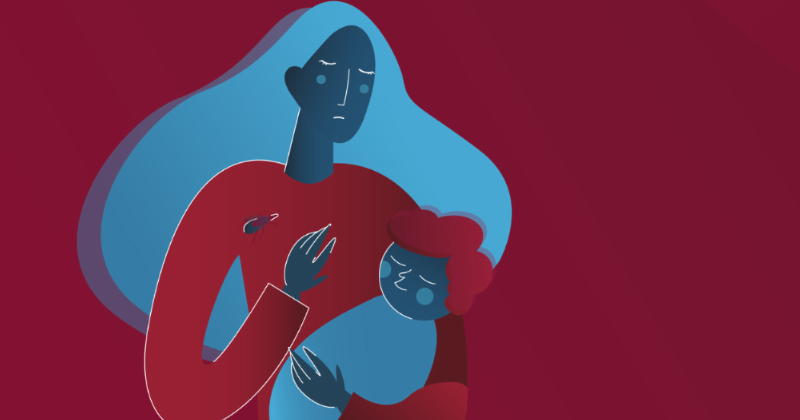- Chagas disease affects between 6 and 7 million people worldwide and kills 10,000 people annually. In Latin America, it causes more deaths than any other parasitic disease including malaria. Patients infected with Chagas disease are at risk of severe COVID-19 manifestations.
- At least two million women of child-bearing age are estimated to be chronically infected with Trypanosoma cruzi ( cruzi) and 5 to 10% of pregnant women with Chagas disease will transmit the infection to their new-borns.
- On World Chagas Disease Day 2021 (14th of April), a new initiative co-financed by Unitaid and the Brazilian Ministry of Health aims to improve access to affordable diagnostics, better treatment, and comprehensive care for women and new-borns in four endemic countries: Brazil, Bolivia, Colombia, and Paraguay.
Geneva – Transmitted by the blood-sucking triatomine bug called Trypanosoma cruzi (T. cruzi), Chagas disease currently affects between 6 and 7 million people worldwide and kills an estimated 10,000 people annually.
In Latin America where it is endemic, Chagas causes more deaths than any other parasitic disease including malaria. According to the World Health Organization (WHO), approximately 75 million people are at risk of infection, most of them among the poorest and most marginalized populations.
Despite high rates of morbidity and a high associated economic burden, only 7% of people with Chagas disease are diagnosed, and only 1% receive appropriate care. If left untreated, Chagas can cause serious heart and digestive complications. Patients infected with Chagas are also at risk of severe COVID-19 manifestations.
Mother-to-child transmission is a major infection route for Chagas transmission. In addition to vector control, active screening, and appropriate treatment options for women of childbearing age, their new-borns and their children could substantially limit congenital transmission and reduce the number of new infections. Importantly, early detection of infection in infants can reduce the number of hospitalizations and deaths related to Chagas disease.
As this week marks the commemoration of the second edition of World Chagas Disease Day 2021 (14th of April), Unitaid and the Ministry of Health of Brazil have come together to support a new US$ 19M joint initiative to improve access to affordable point-of-care diagnostics, better treatment, and comprehensive care for women and new-borns in four endemic countries: Brazil, Bolivia, Colombia and Paraguay.
This initiative will be conducted through a close collaboration with regional and global partners such as the WHO and the Pan American Health Organization (PAHO) and seeks to influence other countries in Latin America and beyond.
“Chagas disease continues to generate much suffering and death for thousands of people in Latin America, especially in the poorer countries and among the most vulnerable populations,” said PAHO Director Dr. Carissa F. Etienne. “Mother-to-child transmission of Chagas can be prevented. We hope that this new global initiative will significantly advance efforts to ensure that every child in Bolivia, Brazil, Colombia and Paraguay is born free of Chagas disease.”
According to PAHO, in Latin America alone, 1.12 million women of childbearing age are infected, and between 8,000 to 15,000 infected babies are born each year.
“At least two million women of child-bearing age are estimated to be chronically infected with Chagas disease worldwide and about 5 to 10% of pregnant women will transmit the infection to their new-borns. By making appropriate diagnostics and improved treatments available for women and their children, we can save future generations from the possible fatal consequences of this insidious disease,” said Dr Philippe Duneton, Unitaid Executive Director.
The project will be implemented by a consortium of partners [1] led by the Fundação para o Desenvolvimento Científico e Tecnológico em Saúde/Fundação Oswaldo Cruz (Fiotec/Fiocruz) based in Brazil.
“This important announcement brings us immense satisfaction, especially during these difficult times of pandemia. It confirms Fiocruz’s commitment to make the best of use science to improve people’s health,” said Nísia Trindade Lima, President of Fiocruz. “By the end of the project, we hope to deliver a replicable and validated model, that will not only contribute to prevent the transmission of the disease but will also lay the groundwork for a new era in care for people affected by Chagas disease.”
The project will include two clinical trials. One aimed at demonstrating the relevance of a rapid diagnostic test algorithm in real-life settings and another one seeking to evaluate the effectiveness of a shorter treatment regimen. If successful, these will reduce the time between screening, diagnosis, and treatment completion.
Additional interventions will also aim at strengthening supply chains and equitable access to potential life-saving products and developing a competitive and transparent market for diagnosis and treatment of Chagas disease.
The evidence generated through the project will be leveraged to facilitate the adoption of feasible and cost-effective health tools and care for Chagas disease regionally and globally.
While most cases still occur in Latin America, the disease is increasingly spreading to other geographies. Cases now appear in places such as the United States, Europe, Canada, Japan, and Australia.
- Fundação Oswaldo Cruz (Fiocruz)
- Instituto Nacional de Laboratorios de Salud “Néstor Morales Villazón” (INLASA) with United Nations
- Development Programme (UNDP) (Bolivia) acting as Administrative Agent
- Instituto Nacional de Salud (INS) (Colombia)
- Servicio Nacional de Erradicación del Paludismo (SENEPA) with Centro de Informacion y Recursos para el Desarrollo (CIRD) (Paraguay) acting as Administrative Agent
- Foundation for Innovative New Diagnostics (FIND)
Related:
- Improving outcomes for women and children – Unitaid publishes its RMNCH Thematic Narrative
- Call for Proposals: In maternal and child health. Towards the elimination of congenital infection in Chagas Disease through better tools for diagnosis and treatment
- ISGlobal: Chagas: 5 Problems and a Series of Solutions
- El País Newspaper: Una entre 39.000
- World Health Organization: World Chagas Disease Day 2021
Media contacts:
Maggie Zander, Unitaid, Geneva (FR/EN/ES/PT) – tel. +41 79 593 17 74, zanderm@unitaid.who.int
Hervé Verhoosel (FR/EN), Unitaid, Geneva – tel. +44 77 29 618 634, verhooselh@unitaid.who.int
View All News
